Watch a cat get a CAT scan at a super-advanced animal hospital
A CAT scan requires that its subject lies perfectly still. Cats (and pets in general) aren't very good at that. So technicians anesthetized Maia in order to begin the procedure.

Tubes ran down her throat as she was placed in the large machine, delivering air to her lungs.
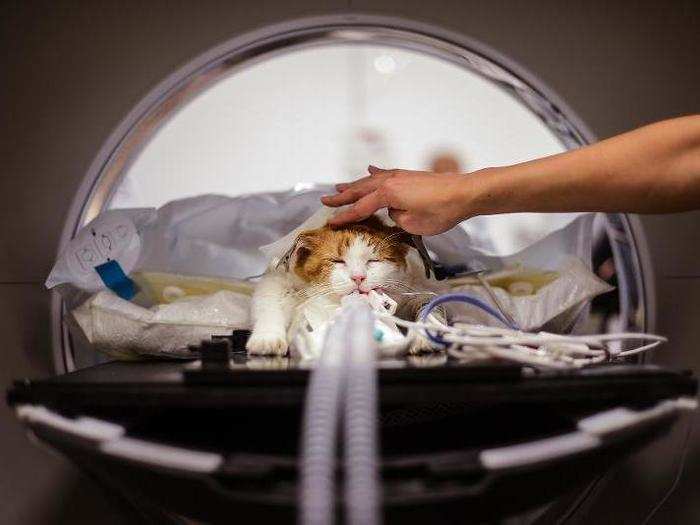
In order for St-Vincent to aim the radiation beams precisely, Maia's position in the CAT scan has to exactly match the position in which they'll place her in the linear accelerator.
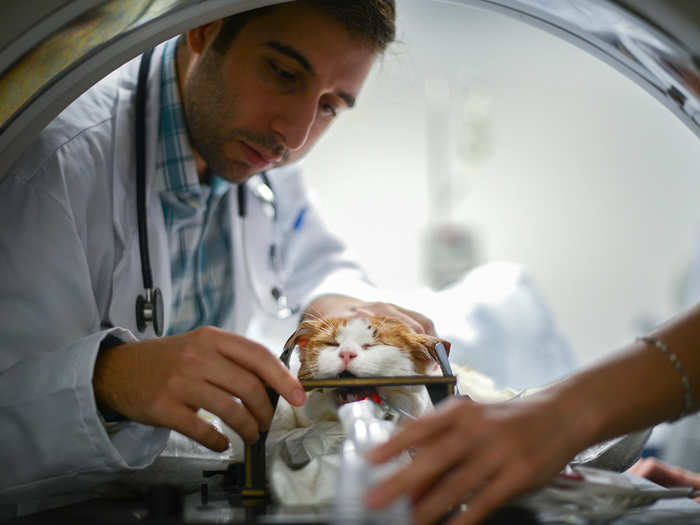
A little shelf placed in her mouth is the first step in immobilizing her head for this purpose.
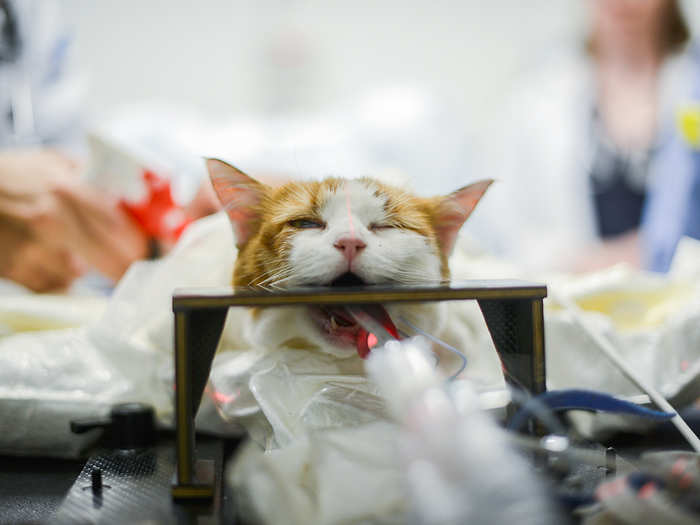
Joseph Jacovino, a resident in the radiation oncology department, works to align the cat's head as straight as possible in order to get the best possible scan.
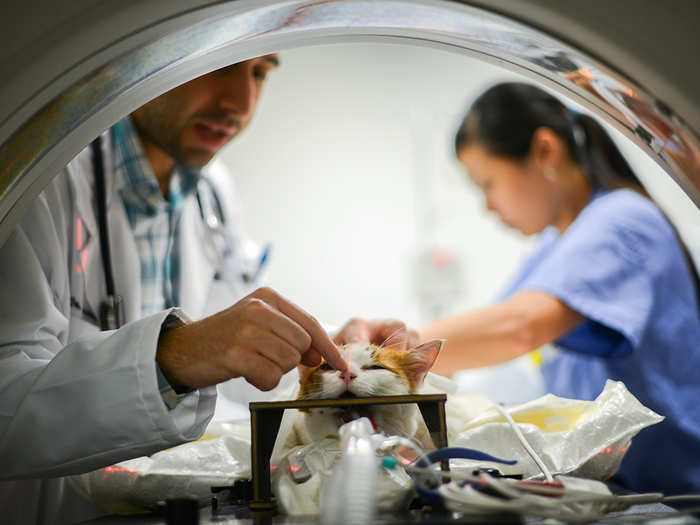
Her body has to be as straight as possible as well.
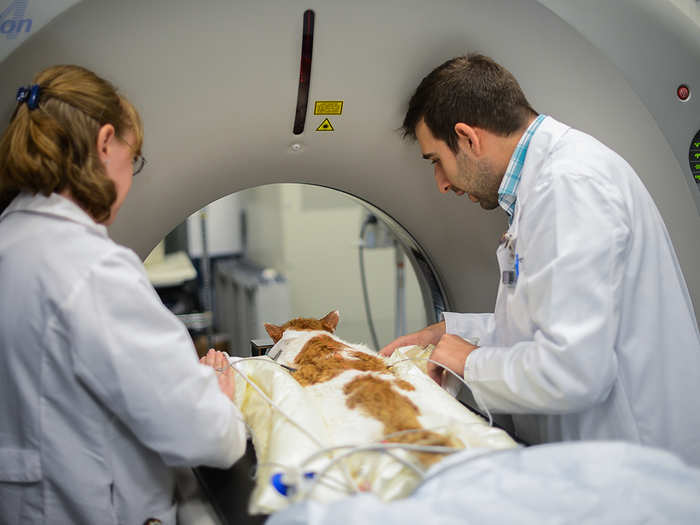
Next, it's time to lift the cat's upper jaw...
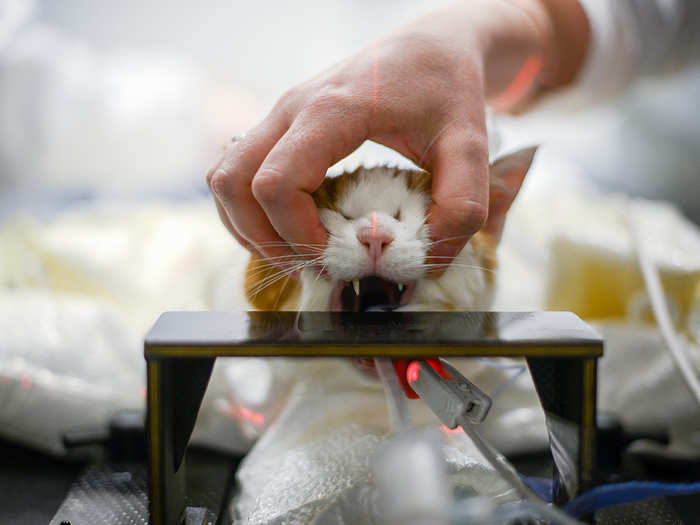
...and prepare the goop.
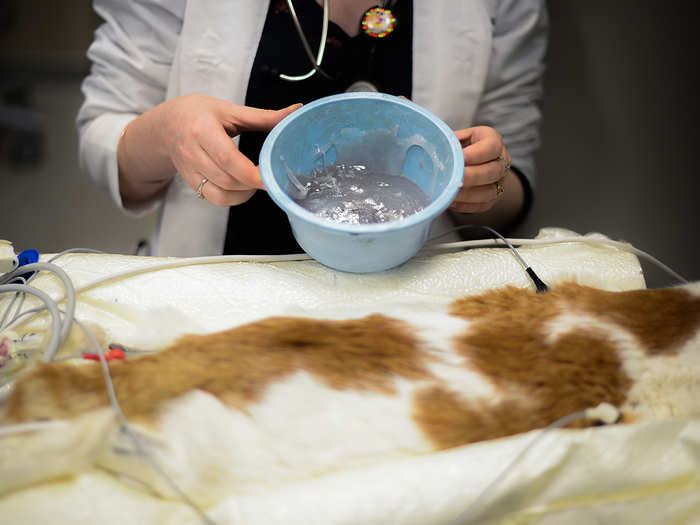
The goop is actually material for a mold of Maia's canine teeth.
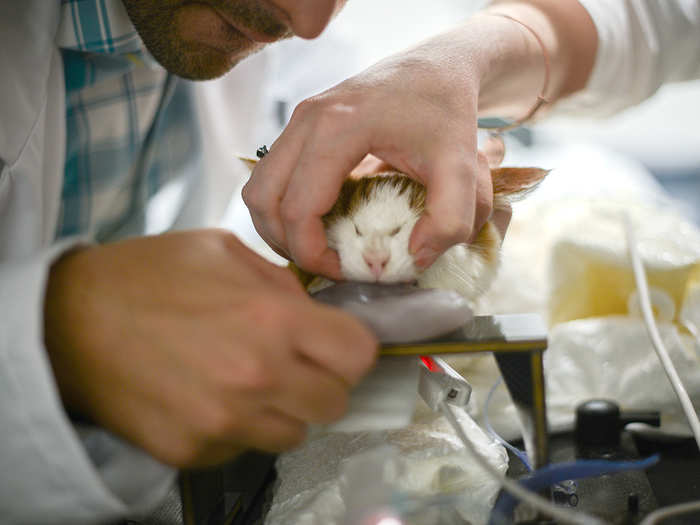
Later, the mold will help hold Maia's head in exactly this position when she goes through radiation treatment.
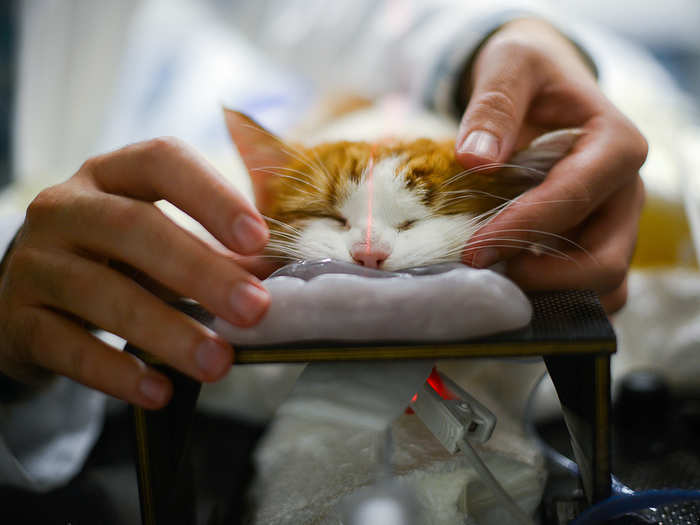
Jacovino presses his thumb on her head to get as deep a fit as possible.
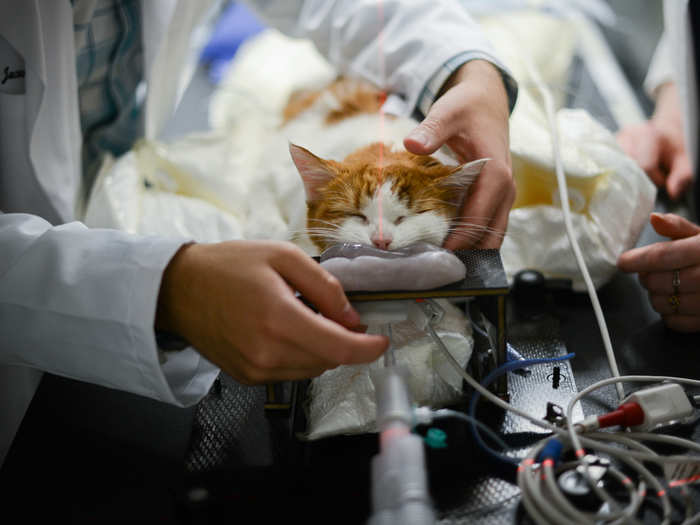
Now it's time to rub the goop with ice so it will harden.
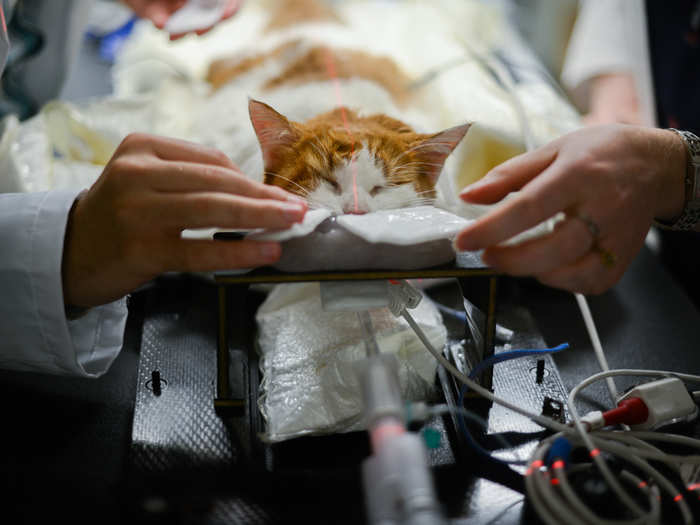
The final restraint for Maia's head is a mask.
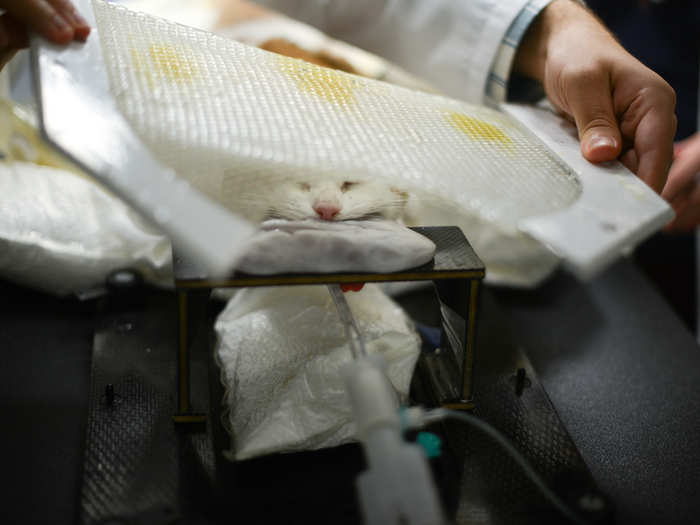
Once it's in place, only her ears are visible from the front of the machine.
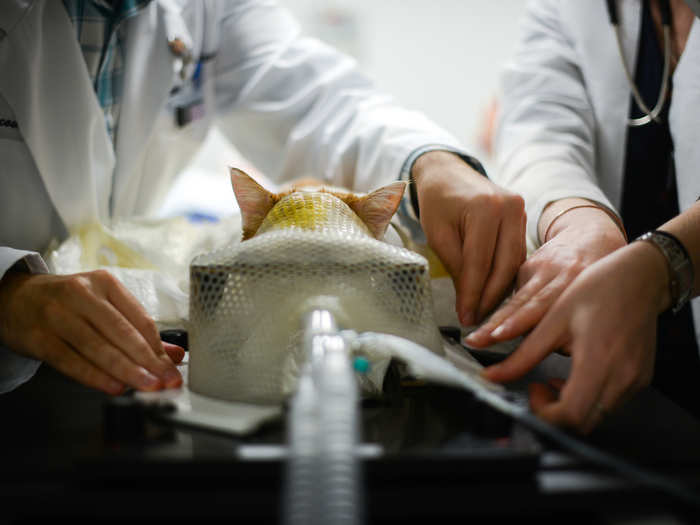
A vacuum bag inflated around her body will hold its shape for the duration of her treatments, helping them position her body in this exact way in the future. The more precise her position, the better-targeted the radiation will be.
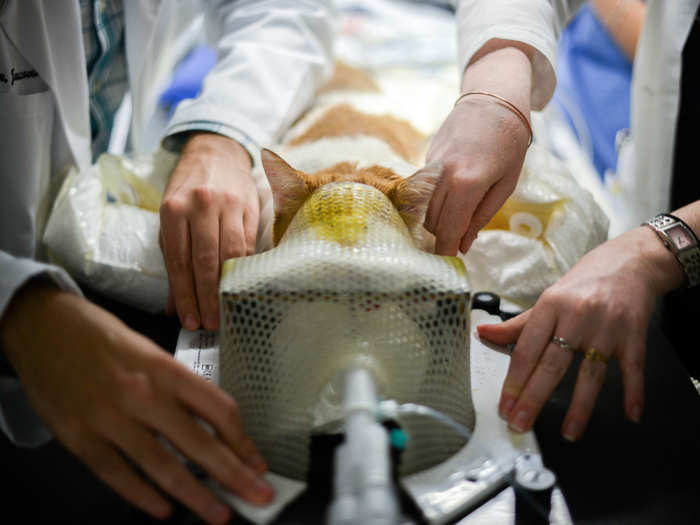
Jacovino asks for the lights out, so he can confirm Maia is properly aligned using the CAT scanner's lasers.
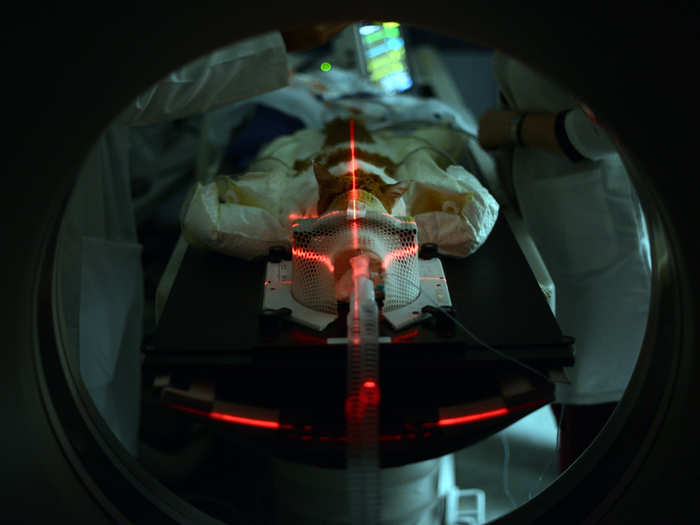
A sharpie marks where on the mask those lasers landed.
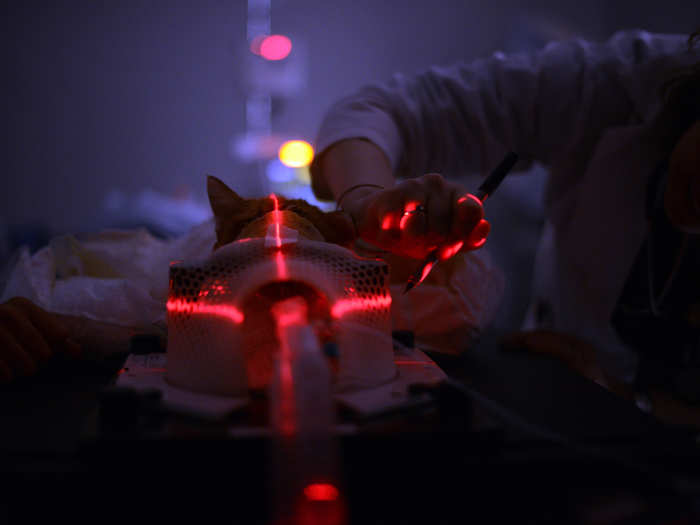
Now Maia, covered in plastic and hot air to keep her warm as her metabolism slows under anesthesia, is ready for her scan.
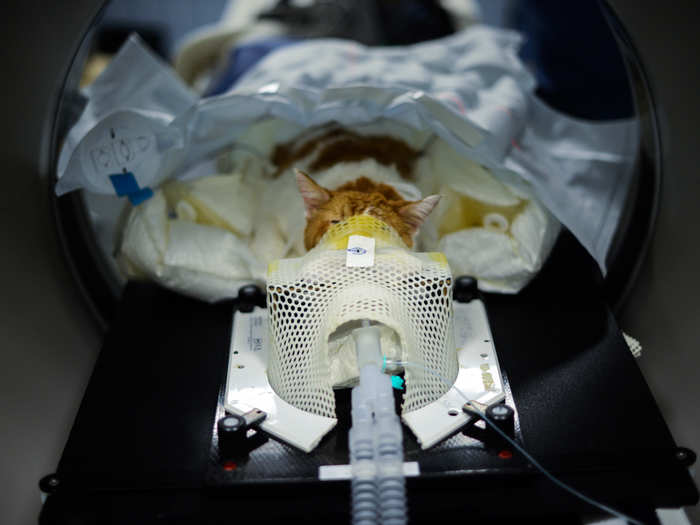
Everyone leaves the room while the X-rays fire. Raf, a radiology technician, monitors the scan. Susan Lee, an anesthesia technician, keeps an eye on Maia's vital signs.
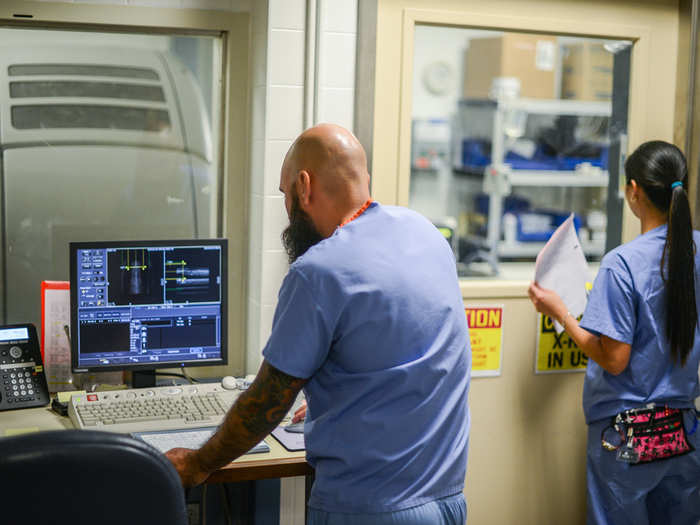
The machine, built for humans, displays a 3D rendering of a human body.
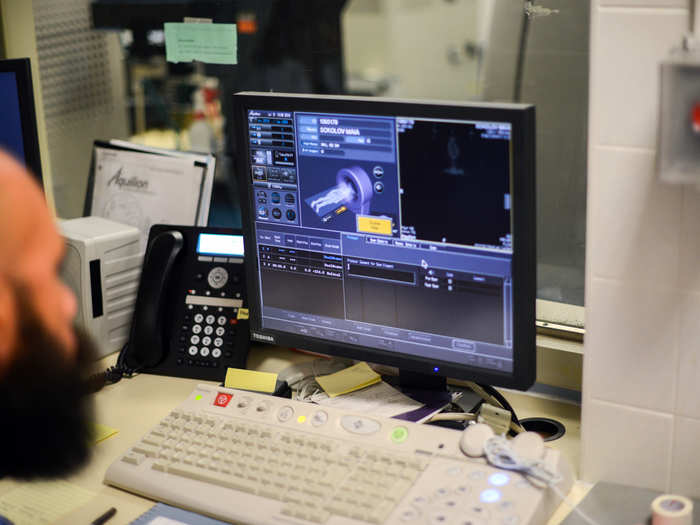
But Maia's skeleton and tissues are soon visible.
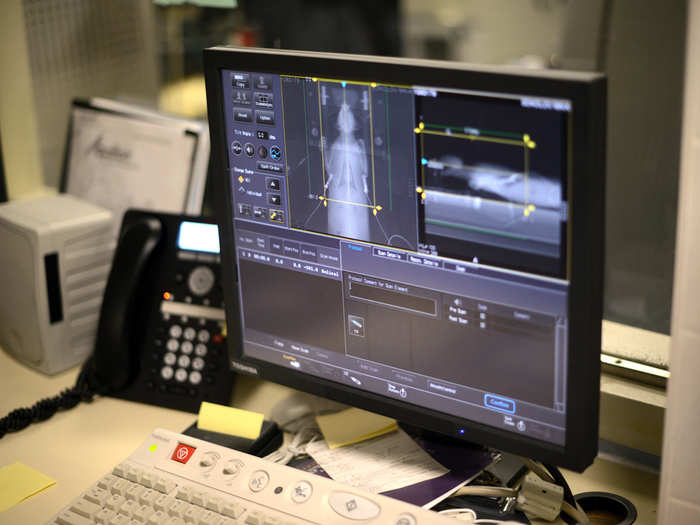
It takes a lot of machine to image a tiny cat.
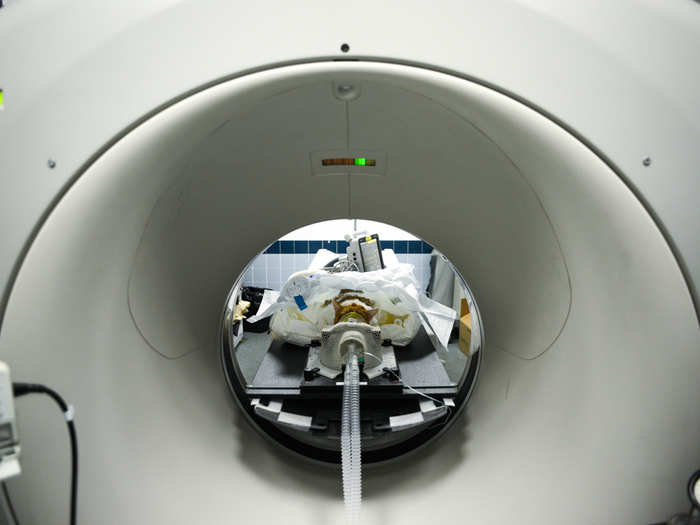
Just a couple hours later, Maia is awake and happy for some human contact in her cage.
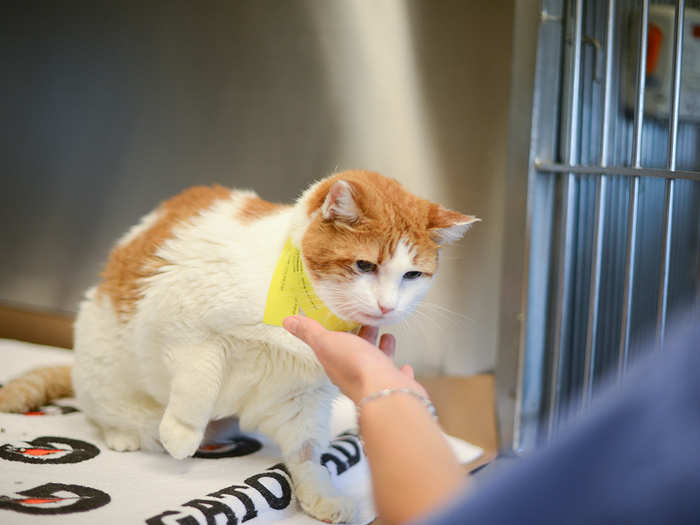
The next step is for St-Vincent to analyze the scans and use them to design a plan for targeting radiation on the exact spot where Maia's cancer resides.
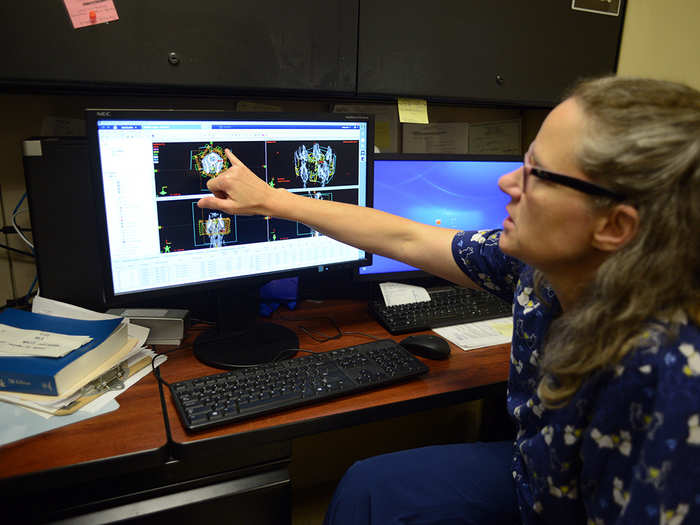
Radiation treatment can cure cancer in some animals, St-Vincent says, but just like in humans "cures" are tricky to come by in oncology. In other cases, it can shrink or mitigate a tumor, making the animal more comfortable or extending its life.
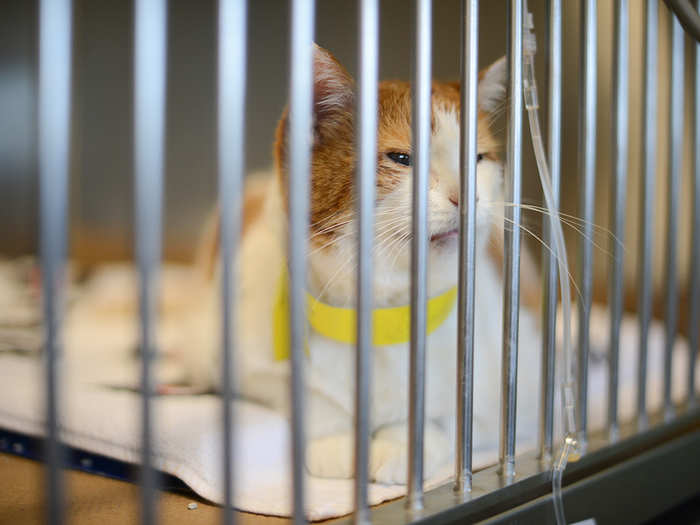
Popular Right Now
Popular Keywords
Advertisement